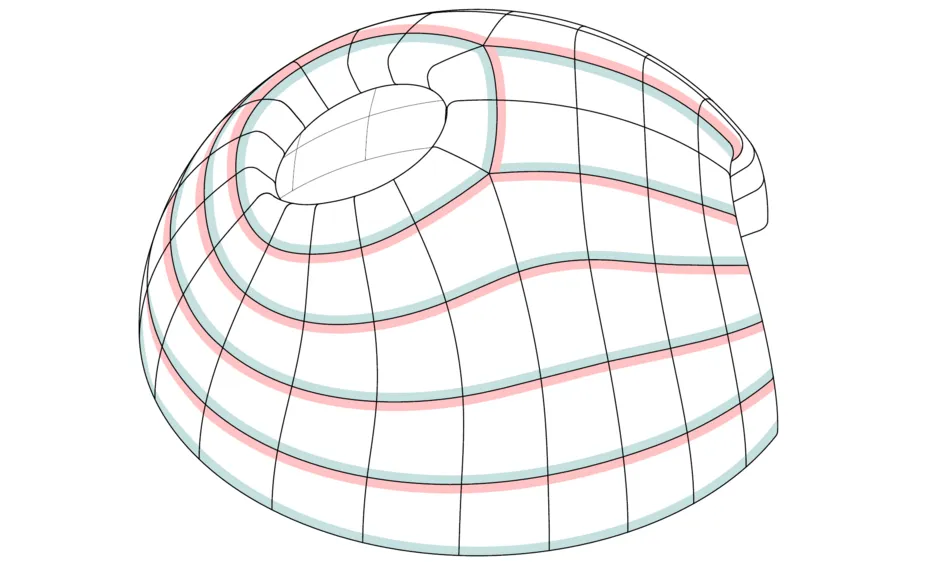Computational Design and Fabrication I
The course bridges fundamental principles of geometric design and computing and leverages these insights to develop new algorithms and tools for 3D shape generation, simulation, structural design, and digital fabrication in architecture and engineering.
Through a blend of frontal lectures and hands-on tutorials, students explore and learn innovative computational design solutions, emphasising advanced fabrication and construction techniques across scales. This interdisciplinary exploration draws upon the close interrelation between various scientific disciplines, including mathematics, computer science, structural engineering, and architecture.
Course Structure:
The course curriculum is structured to provide a comprehensive understanding of key topics:
- Introduction to computational design: Foundational concepts of structural and fabrication-aware design, setting the stage for integrating practical and theoretical knowledge.
- Computational geometry fundamentals: Covers essential data structures, data exchange formats, and algorithms that form the backbone of effective computational design methods.
- Advanced geometry processing: Introduction to form-finding methods and geometry processing, enhancing students' algorithmic thinking and programming skills for practical applications in design and fabrication.
Teaching Team:
- Chair of Structural Analysis (Dr.-Ing. M. Hojjat, Dr.-Ing. Ann-Kathrin Goldbach)
- Professorship of Structural Design (Prof. Dr. Pierluigi D’Acunto, M.Sc. Christian Richter, MA Tao Sun, M.Arch. Bhavatarini Kumaravel)
- Professorship of Digital Fabrication (Prof. Dr. Kathrin Dörfler, Dipl.-Ing. Lidia Atanasova)
